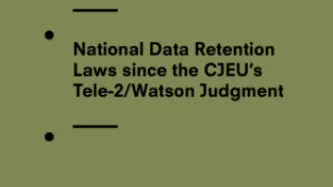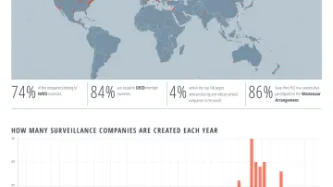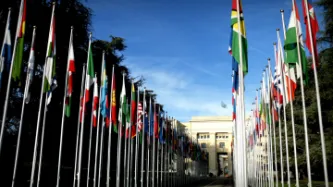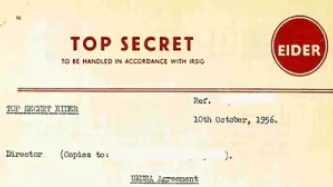Search
Content type: Report
… Union (CJEU) on the case of LQDN, FDN and others v. France, concerning the retention of personal data under … 2020 the CJEU issued its judgment on joint cases against France and Belgium. In this decision of the Grand Chamber of …
Content type: News & Analysis
… under which security and intelligence agencies in the UK, France and Belgium could have access to communications data …
Content type: Report
… Belgium, Bulgaria, Croatia, Cyprus, Czech Republic, France, Germany, Hungary, Ireland, Italy, Luxembourg, the …
Content type: Press release
… But as we’ve seen in recent elections in the US and France, the vulnerability of our devices and communications …
Content type: News & Analysis
… the United States of America (USA), United Kingdom (UK), France, Germany, and Israel comprising the top five …
Content type: News & Analysis
… drafting, in countries such as Australia, China, Denmark, France, Kenya, the Netherlands, Pakistan, Switzerland and … serious concerns about surveillance powers in Canada, France, the Former Yugoslav Republic of Macedonia, the … all cases, including in relation to communications data. On France, the Committee expressed concerns that the …
Content type: News & Analysis
… by world leaders to the horrific terrorist attacks in France earlier this month has been all too familiar. As …
Content type: News & Analysis
… 9 Eyes : the Five Eyes, with the addition of Denmark, France, the Netherlands and Norway; 14 Eyes : the 9 Eyes, …
Content type: News & Analysis
… shield for what goes on behind that. Countries like France and the United States, as you well know, are active. …
Content type: News & Analysis
… European allies.” … “The UK is amongst countries such as France and Denmark which have therefore chosen to take both …








